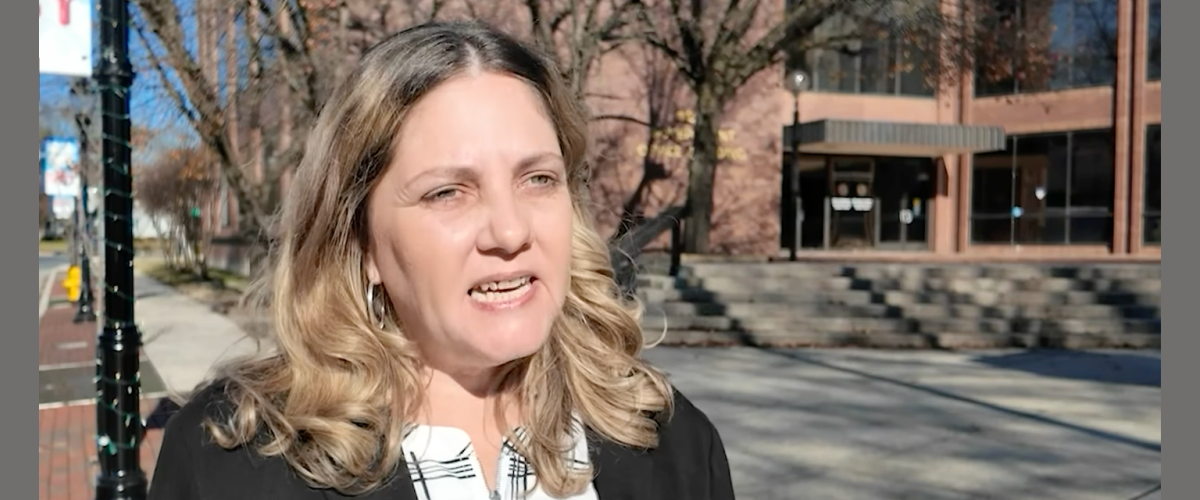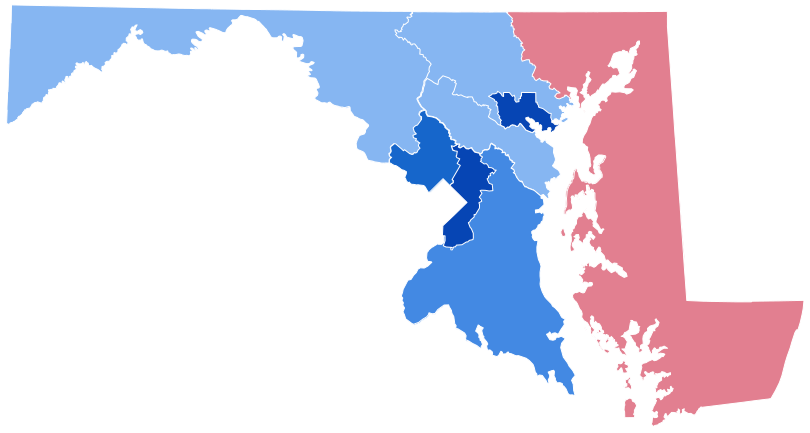Conservative PAC, Dems Face Off over Maryland School Board Races

There's a little-known conservative power player in the nation’s school board elections, and it has endorsed more candidates in Maryland than in any other state.
The 1776 Project PAC, which says on its website that it supports “reform-minded conservatives who oppose political indoctrination and believe in parental rights,” has endorsed 19 Maryland school board candidates in nine of the state’s 24 school districts. The endorsements come as the state’s Democratic Party announces strategic targeting of 24 “extreme” conservative candidates.
This isn’t the 1776 Project PAC’s first foray into Maryland’s election. In 2022, the political action committee campaigned for at least three Maryland school board candidates, but not without incident.
A year ago, the state prosecutor and the Maryland State Board of Elections fined the PAC more than $20,000 for its campaign practices during the 2022 school board elections. The fine stems from what the 1776 Project PAC did in November 2022, when it sent 13,879 text messages to Carroll County voters urging them to vote for certain candidates.
“Stop indoctrination in our schools, early voting has started [sic] vote for the pro-parent ticket for school board Tara Battaglia, James Miller and Steve Whisler,” one message read. Battaglia and Whisler won election to the school board.
In Maryland, the law requires campaign messages sent on behalf of candidates to record who paid for the information to be distributed, regardless of whether it is a yard sign, a pamphlet, or a digital advertisement. The 1776 Project PAC text in 2022 lacked such a provision and therefore deserved to be sanctioned, said Maryland State Prosecutor Charlton T. Howard in announcing the fine a year ago.
“Being able to identify the source of information for campaign material is essential to honesty and transparency in our electoral process,” Howard said.
This year, the 1776 Project PAC has spent a total of $75,409.58 on 13 Maryland school board candidates across Cecil, Queen Anne’s, Talbot, Calvert, Somerset, and St. Mary’s counties. Other candidates endorsed by the group did not receive direct funding as of the latest campaign finance filing deadline.
The political action committee is the brainchild of former political consultant and journalist Ryan James Girdusky, who founded the organization in 2021. A letter from Girdusky on the PAC’s website explains that he was spurred to start the 1776 Project when his godson’s teacher read his class two books about police brutality and white privilege.
“Progressive activists within our public education system were using their positions to indoctrinate children,” Girdusky wrote in the letter.
“I created the 1776 Project to change public education by reforming school boards and electing reform-minded conservatives who wanted to improve public education in this country,” he added.
The Maryland Democratic Party calls the 1776 Project PAC a “radical right-wing group,” alongside the conservative parental rights organization Moms For Liberty, which successfully banned 21 books from public school libraries in Carroll County earlier this year. The involvement of the two organizations has prompted the state Democratic Party to invest directly in Maryland’s school board races, a move the party referred to as “unprecedented.”
“The Maryland Democratic Party is committed to defending our students from the dangerous fringe agenda that extremist candidates and the far-right groups are hoping to bring to our state,” said Ken Ulman, chair of the Maryland Democratic Party, in a press release. “We won’t allow radical activists dedicated to banning books and discriminating against students to take over our schools.”
In its X account bio, the 1776 Project PAC boasts that it has helped elect over 200 “un-woke,” or conservative, school board members since its founding. According to its website, the Project 1776 PAC has focused its endorsements on four states — Maryland, Tennessee, Florida and Arizona — after its successes in three Wisconsin races in April.
To date, the organization has endorsed six candidates in Tennessee, 15 in Florida and 17 in Arizona this election cycle.
The 1776 Project PAC did not respond to multiple requests for comment on the specifics of its policy proposals on school library regulation or preferred pronoun use in public schools. However, some of the candidates it endorsed — such as Elena Brewer of St. Mary’s County — did.
“My main priority is to promote excellence in education and not indoctrination,” Brewer said in response to a Local News Network questionnaire. “Our public schools should in no way become avenues for various special interest groups to promote their political agenda, such as radical gender theory, which attacks the children’s God-given identity and robs them of their innocence. I intend to promote age-appropriate teaching materials, stop the sexualization of children, and promote learning, and the building of character.”
On the 1776 Project PAC website, the organization writes that “biological sex is real and must be taken into account in schools” and that so-called “gender ideology” has been popularized among youth in recent years, something the 1776 Project PAC views as a threat against young girls.
On the topic of book bans, Girdusky stated in a post on his X account that “the 1776 Project PAC does not take a position on which books are offered in school libraries." He listed the organization’s priorities as fiscal transparency, improving academic standards, promoting classic education and patriotism, safe classrooms and parental involvement in public schools.
Specifically, the 1776 Project PAC opposes critical race theory and diversity, equity and inclusion efforts, stating on its website that they “subordinate the liberal arts to indoctrination.”
That’s the kind of conservative agenda that some candidates want to stop.
“In recent years, I have become increasingly concerned with the politicization of public education,” Amanda Jozkowski, a Carroll County school board candidate who lost in 2022 and who is running again this year, said in response to the LNN questionnaire. “Decisions that impact our children should be driven by data, best practices, and the needs of our students and educators — not by partisan agendas. I want to eliminate division and distraction and refocus the board’s efforts on what matters most: ensuring that every student has access to a high-quality education that prepares them for life after graduation, whether that means college, career, or other pursuits.”
Local News Network reporter Tolu Talabi contributed to this report.
Capital News Service is a student-powered news organization run by the University of Maryland Philip Merrill College of Journalism. For 26 years, they have provided deeply reported, award-winning coverage of issues of import to Marylanders.
Common Sense for the Eastern Shore







